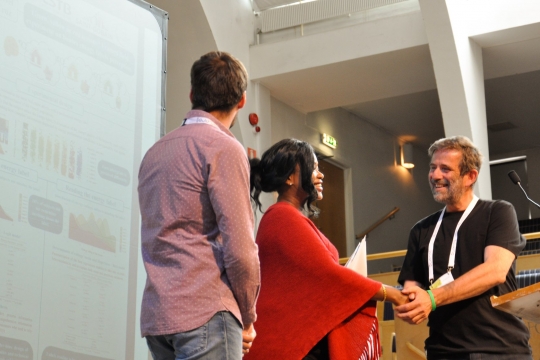What does gender of a smallholder farmer got to do with the value of wild pollination services to crop productivity?
Byela Tibesigwa and fellow researchers Juha Siikamaki, Razack Lokina and Jessica Alvsilver of EfD´s Ecosystem Services Accounting for Development Research Program (ESAforD), answered this, in their paper: The value of wild pollination services to crop productivity: What does gender of the smallholder farmer got to do with it? It turned into an award winning poster for the 2018 World Congress of Environmental Economists.
Smallholder men and woman farmers in sub-Saharan Africa, grow different crops, however, Dr. Tibesigwa found that this important division of crops by gender is not considered in the current valuation of pollination services to crop productivity, and this gender bias is the hypothesis tested in this paper.
“The overall objective of the ESAforD program is valuating ecosystem services, in this paper we were particularly interested in valuing wild pollinators ecosystem services to try and figure out what benefits they offer to smallholder farmers in Sub-Saharan Africa, but we also go further than that and we tried to see if the benefits from wild pollinators vary by gender, to see if the benefits from farms managed by men derive from the benefits of the farms managed by woman.
What we find is that the more ecosystem services that are available to farmers, the higher the output that the farmers get. We find that this benefit is higher among woman managed farms, to us we see that pollination ecosystem services are beneficial to smallholder farmers in general but female managed farms derive more benefits. The message is that we should definitely consider gender issues when we are talking about ecosystem services natural capital, and there has been not enough exploring on gender in this area” saysTibesigwa.
The poster was a joint effort by Dr. Byela Tibesigwa and EfD editors Peter Berck and Cyndi Berck.
“It was humbling to receive the recognition from the WCERE 2018 organization, and a great learning experience”, says Tibesigwa.
For more information on the ESAforD Research Program click here.
